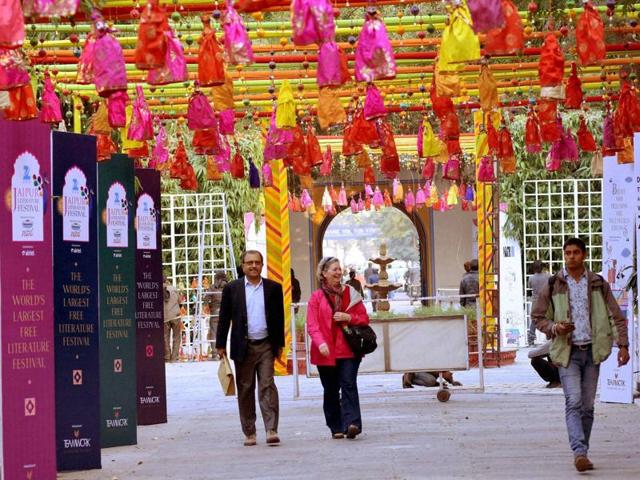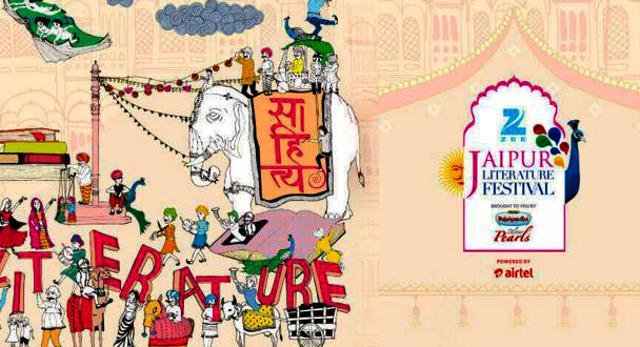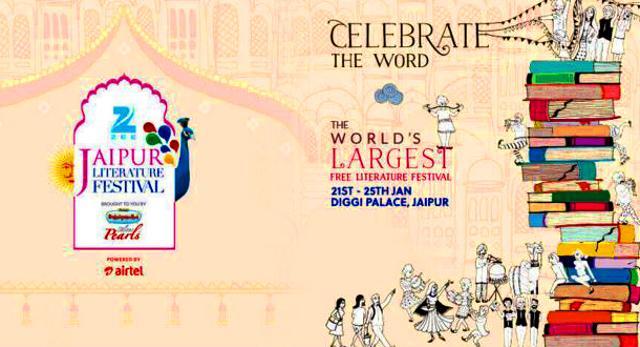JLF 2016: Mark your presence at the Ibiza of world literature
FromDalit literature to novelists from Balkans and the Caribbean, Jaipur Literature Festival 2016 promises to be the spot in world literature. Here’s a round-up from the creator-founder, William Dalrymple.
The Jaipur Literature Festival is a unique celebration of writing that has grown into something bigger and more wonderful to anything we could ever have hoped when we first conceived this festival a decade ago. From only 14 guests turning up in 2005, most of whom were tourists who took the wrong turn; in 2006 we had a big enough crowd nearly to fill the Diggi Durbar Hall. About four hundred people came in 2007. Last year, we had nearly a third of a million footfalls, and the success of Jaipur has inspired a whole galaxy of nearly ninety other literary festivals not only in India but in Pakistan, Bangladesh, Sri Lanka, Bhutan, Nepal and now Burma. We are as surprised as we are proud of this.

Jaipur remains the one of the world’s most beautiful cities, with a rich cultural heritage and a proud tradition of literature. It is the perfect setting for what we pride ourselves is the most democratic and egalitarian book festival in the world. All events are completely free; there are no reserved spaces for grandees; our authors mingle with the crowds and eat with them on a first-come, first served basis. People also know that when they come here they will have a lot of fun. As Time Out put it nicely last year, “It’s settled. The Jaipur Literature Festival is officially the Woodstock, Live 8 and Ibiza of world literature, with an ambience that can best be described as James Joyce meets Monsoon Wedding.”
Read: Jaipur Literature Fest 2016 to focus on culture and heritage
But the scale and reach of the festival is something that still takes us all aback. When we ask an author to come to Jaipur, they very rarely say no, and this year we are proud to present a galaxy of Booker, Pulitzer and Samuel Johnson winners -- for free. Jaipur has now become synonymous with the greatest writers on the planet.

This year we have so much to offer that it is difficult to know where to begin. My colleague Namita Gokhale has put together an extraordinary Indian and bhasha list this year with names ranging from Punjabi Dalit activist Bant Singh through Hindi short story writer Anu Singh Choudhary and award winning poet Yatindra Mishra, to our perennial festival favourites like Javed Akhtar and Gulzar.
Read: Jhumpa Lahiri honoured with DSC prize at JLF 2015
I am equally proud of the international list which this year is, I believe, the most cerebral, intellectually-stimulating and high-powered we’ve ever fielded.
Among the international authors appearing this year we present writers of genius as diverse as economist Thomas Piketty and humourist and polymath Stephen Fry. We import some of the world’s most admired novelists, including Margaret Atwood, Colm Toibin, Aleksandar Hemon and David Grossman, as well as arguably the world’s greatest living travel writer, Colin Thubron.
We deeply delve into three areas of world literature we have so far failed to explore- notably the novelists and poets of the Balkans, the Caribbean and Central America--while returning to examine eternal classics such as the work of Shakespeare, Proust and Andal. We will look in detail at the turmoil in the Middle East--the Shia Revival, the oppression of the Palestinians, and the rise of ISIS as well as examining the historical roots of the conflict: in A Peace to End All Peace four leading scholars of the Ottomans, the Armenian Genocide and the First World War, Eugene Rogan, Margaret MacMillan, Ronald Suny and Anthony Sattin show how the choices made between 1918 and 1921 set the Middle East along a road that led to the conflicts and confusion that continue to this day.

We will explore a vast range of subjects from Neanderthals to Hedge Fund Managers; the bleak depths of depression to the heights of the Silk Road; universal myths of the Deluge to the literature of the ethics of Empire; from adultery in Baroque Rome to the practice of contemporary art; from Mount Kailash to Zion; from Jamaican rap and mediaeval mystic poetry; the agonies of Partition to the pleasures of the Kama Sutra.
It’s going to be an absolutely extraordinary five days and I only wish it were possible to clone oneself so that one could attend five sessions simultaneously.





